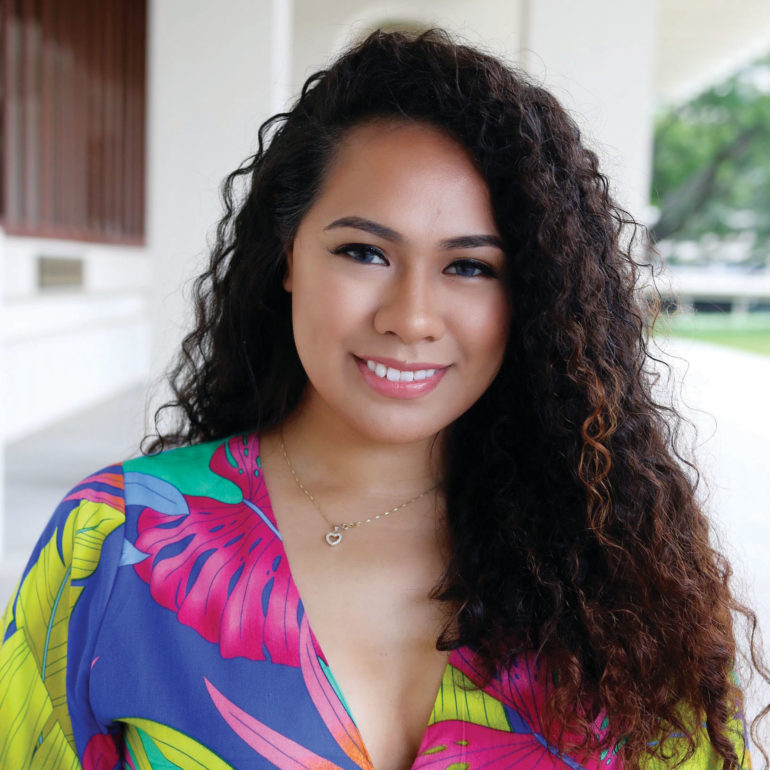As a dual citizen of Tonga and the United States, Piueti Maka ’13 has made it her goal to improve health care access for Pacific Islanders and native Hawaiians – something that has become particularly critical with COVID-19 disproportionately impacting these communities in Hawai‘i.
Maka recently completed a yearlong post-baccalaureate program at John A. Burns School of Medicine’s (JABSOM) Department of Native Hawaiian Health and is now in her first year there as a medical student. Her interest in medicine began at a young age, when her own family in Tonga lacked access to affordable health care. Since then, she’s been passionate about bridging those disparities.
“A lot of times physicians or the health care system aren’t set up to deal with certain challenges that native Hawaiians and Pacific Islanders have to face,” she says. “It’s hard to explain science and medicine to Pacific Islanders, whose values aren’t necessarily science-based when they’re more focused on family and survival.”
Now part of a Polynesians in Medicine student group, Maka sees herself as adding diversity to the medical community, as well as helping translate medicine and science in culturally appropriate ways that resonate with Pacific Islanders’ values. “Especially with COVID-19, it takes very competent physicians to be able to navigate those roles, and I’ve realized that we lack the diversity for native Hawaiians and Pacific Islanders in medicine,” she says.
It was during her time at Punahou that Maka realized a medical career was even possible. “Without Punahou, I feel like my life would not have gone in the same direction,” she says. “I think I would have definitely worked towards medicine, but I think I would have been a lot more discouraged, or I don’t think I would have had the foundation that I needed, and it would have taken me longer.”
Throughout her educational journey, Maka’s family and friends supported her. “It’s been a really difficult journey because I do come from immigrant parents,” she says. “My dad has had to support us, and I have four other siblings. So definitely trying to find a way to pay for education, not just for Punahou but also college, was really difficult. There are so many people who played a role in getting me to where I want to be and just continuously showing me love and support. And I think the biggest way I’ve been given that support is through financial scholarships.”
Maka is grateful for donors who helped fund her education, including at Punahou. There were times she didn’t believe she could finish school. “I get emotional when I think about it,” she says. Receiving financial support “gave me motivation that someone believes that I could do this or that I deserve to be where I am today.”
Recently Maka was fitted for her white doctor’s coat and reflected on the moment on her Instagram page: “When you see me in my white coat, just know that you’re looking at years of physical, emotional, spiritual, and financial sacrifice and support by my community,” she wrote. “This is just to say, when you see me in my white coat … you see all of us.”


